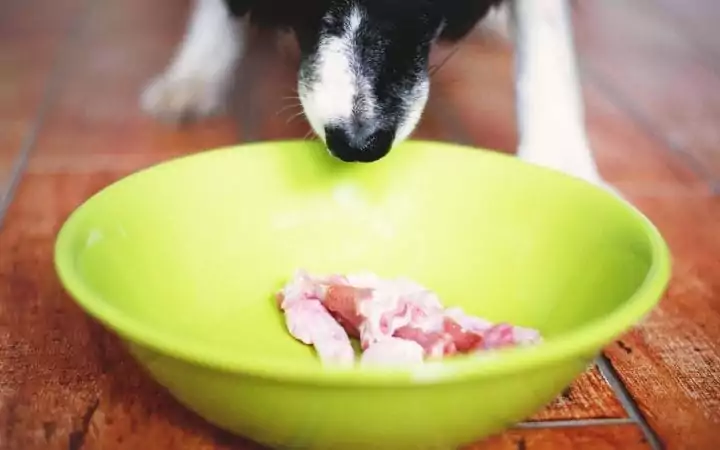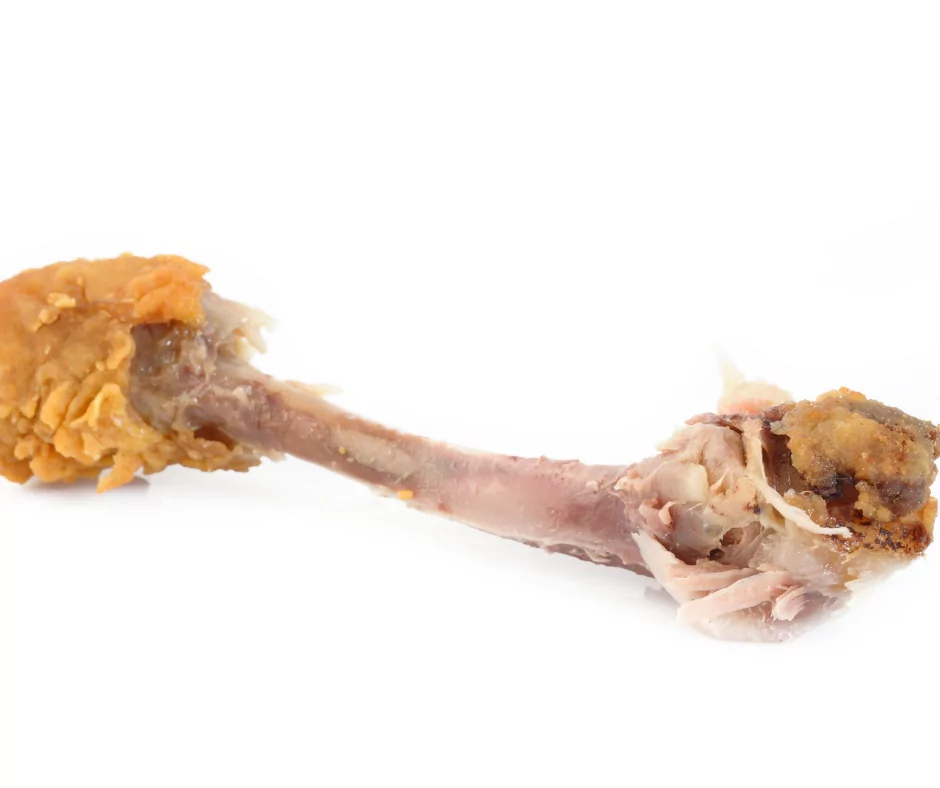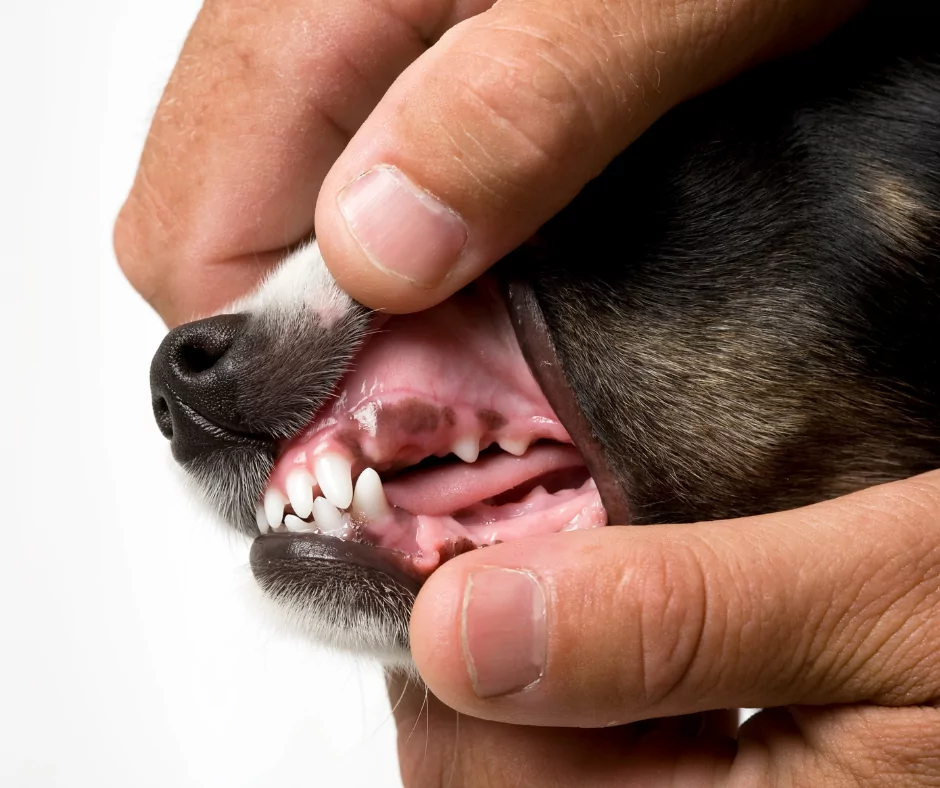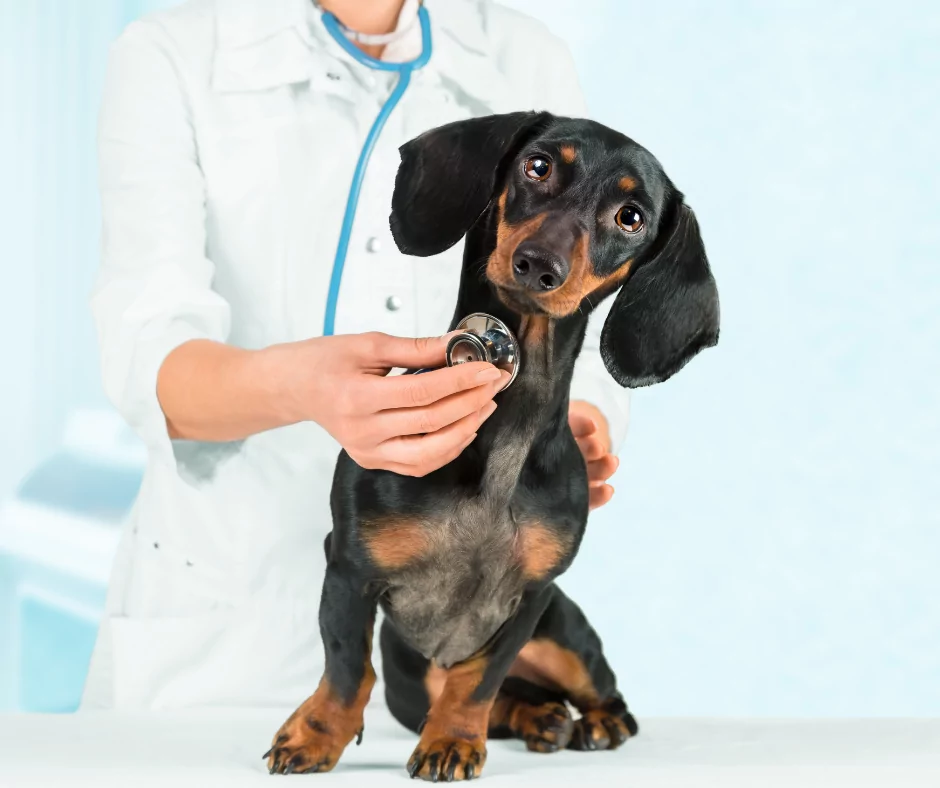Before we start, you should consider asking yourself, can dogs eat chicken bones? It is common for a family to finish their meal and glance down at the begging dog and think, “should I just give them a bit of the leftovers?” if those leftovers are chicken bones, then this article will help explain why the answer should be “no.”

Chicken bones are commonly encountered when preparing food, they won’t necessarily always cause a problem, but there is a risk. In this article, we will explain why dogs can’t eat chicken bones, what to do when a dog has swallowed a chicken bone and when you should get them seen by a veterinarian.
Dogs are amazing creatures, right? We love them and we want the best for them, always. Many dog owners strongly believe that dogs are meant to eat bones like in the old days because that is their heritage. Well, yes, dogs back in the days ate everything, including the whole carcass of their pray, and that means chewing on bones too.

How Bad Are Chicken Bones for Dogs?
Bones are a great way to keep a dog occupied for hours, a tasty treat, full with calcium and excellent teeth cleaner.
BUT bones can be very dangerous too. Left unsupervised when your dog chews on bones can lead to serious damage and health issues. Especially chicken bones.
Bones can break teeth, bones can just break and lodge in the gums, get stuck in the esophagus, split into small pieces (especially chicken bones, they are very brittle) and damage the stomach and the intestines and cause heavy bleeding. Yes, bones can be very dangerous and cause your dog some serious damage.
Chicken bones can be problematic for dogs for a few different reasons.
- Choking: The bones can be a choking hazard when swallowed; if they get stuck in the mouth or throat, they can block the windpipe and can be very dangerous. This is an emergency and you should get your dog to a veterinarian ASAP unless you are able to retrieve the bone yourself safely.
- Perforation: When chewed, chicken bones can splinter and create sharp shards that can penetrate the lining of the gastrointestinal tract and cause a perforation. This can be very serious and usually requires surgery to fix.
- Blockage: If a chicken bone cannot pass through the gastrointestinal system in a dog, it can become blocked and prevent the passage of food and water. This is very serious and may require surgery.
4. Bacterial infection: If raw or improperly stored chicken bones are fed, they can carry bacteria such as salmonella, leading to a gastrointestinal infection.
Signs and Symptoms

The signs of there being a problem after a dog has eaten a chicken bone will vary depending on what the outcome is. Hopefully, there will be no problem, and your dog will continue as usual.
If a dog is choking, you may see them look panicked and running around, have difficulty breathing, their gums may turn blue, and they may start pawing at their face and coughing.
Common signs of perforation or blockage are vomiting, diarrhea, lethargy, and abdominal pain. You may notice your dog has a fever and isn’t interested in food.
Signs of a bacterial infection will be similar to humans with food poisoning. You might see vomiting, diarrhea, fever, and inappetence.
My Dog Ate Chicken Bones, What do I do Now?
If your dog is choking, they need immediate medical attention. If you think you can safely retrieve the bone, then an attempt can be made, but if not, it’s best to get to a veterinarian as soon as possible. If you can, contact the veterinarian before you arrive, they will be able to set things up in preparation for arrival.
If your dog is looking normal, then generally, it’s ok to monitor them. Commonly there will be no problem, but it’s essential to be aware of the history so that if your dog starts to become unwell, you can let your veterinarian know that your dog ate chicken bones.
If your dog shows signs of vomiting, diarrhea, or lethargy, then it’s vital to make an appointment to be seen by a veterinarian.
If you aren’t sure what to do, you can call for advice and see what your veterinarian wants you to do.
If your dog eats chicken bones stay calm. They can be dangerous but that does not mean they will cause harm every time. You will need to monitor your dog in the next 72 hours for signs of lethargy, loss of appetite, vomiting or diarrhea, bloody stool or bloody diarrhea, bloating. If any of these signs are present seek immediate veterinary care.

What About Cooked Chicken Bones?
The cooking process helps to eliminate bacteria from food, so bacterial infection becomes much less likely compared with feeding raw bones. This doesn’t make them a good alternative, however.
Cooked bones become softer and therefore easier to crunch and splinter. This makes them a potential choking hazard as well as being capable of causing a gut perforation or foreign body. It is not recommended to feed raw or cooked chicken bones.
When Should I Take My Dog to the Vet?
Any unwell dog should be seen by a veterinarian. Vomiting, diarrhea, and lethargy are common signs of many different diseases. Still, if you know your dog recently ate chicken bones, then it’s important to mention this to your veterinarian to help them find a diagnosis more quickly.
If a dog is choking, it needs to be seen by a veterinarian immediately. They can help to retrieve the bone that is stuck and, if necessary, provide oxygen or emergency medicine to help your dog calm down enough to allow the bone to be removed from the throat.
If a dog has a perforation or obstruction, this is typically diagnosed with history, physical examination, and imaging. Surgery can then be performed to remove the bone and repair the damaged organ. If the bone can be reached in the upper digestive tract, endoscopy can also be used in some cases, and it doesn’t require cutting the skin.
On the video below is an example of a chicken bone stuck in the hard palate of a dog.
Prevention is Better Than Cure
As always, the best thing you can do is protect your pet. If this has already happened, you can only help your dog and learn from the incident. Don’t let the garbage can open or easily reachable, so your dog can dig into the dinner leftovers. Don’t forget the food on the table, so your dog is tempted to try it out. And always keep an eye on your dog and what it is doing 🙂
If you want to learn about more ways your dog can get in trouble, read “Most common choking hazards for dogs” on our blog.
Alternatives to Chicken Bones
There are many safe alternatives to chicken bones, chew toys, and treats designed for dogs that can be purchased from your local pet store or veterinary clinic.
Animal products such as tendons and cartilage are much safer than bones as they are made of connective tissue which can be digested. These offer a more natural alternative without the risk of severe consequences.
